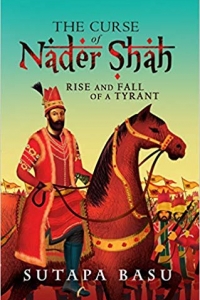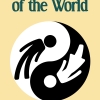
A great Arab historian, Ibn Khaldun, had developed a theory on the rise and fall of ruling Islamic dynasties way back in the 13th century. According to it, warlike nomad tribes first begin to dominate the countryside, then go on to conquer cities. They set up dynasties and rule the urban population. But once established, the ruler of the new dynasty distances himself from his former nomad supporters. The secure dynasty, then, augments its prestige by erecting splendid monuments. This theory applies perfectly to the Safavids who appeared in Persia in the late 15th century as leaders of a Turcoman tribe from eastern Anatolia. They conquered Azerbaijan, western Persia, Fars and Khorasan. Esmail crowned himself Shah in 1501. When he wanted to return to Anatolia, he was defeated by the army of the Ottoman Empire. Thus the rule of the new regime remained restricted to the borders of ancient Persia. The bitterness between the Ottoman and Safavid empires was worsened by the Sunni/Shia religious schism.
When Shah Abbas the Great ascended the throne in 1588, the Safavid dynasty erected magnificent buildings and Isfahan became a splendid example of this tendency. However, the tough, austere principles that had established the dynasty were lost. The rulers gave themselves up to a life of pleasure and indolence. Inherited wealth that should have been used for the state was squandered. Eventually, the Safavid dynasty became prey to conquering nomads like the ones that had once instituted it.
The last Safavid monarch, Shah Soltan Hosein was an indolent drunkard and womaniser. His reign saw a resurgence of tribal revolts, such as that of Lazgis in Daghestan as well as Afghan incursions into Persia. Mahmud, chief of the Ghilzai Afghan tribes fought and defeated the Persian armies. He laid siege to Isfahan and finally in October 1722, Shah Soltan Hosein removed his jique, the symbol of Persian royalty, and fastened it on Mahmud’s turban ending over two centuries of Safavid rule in Persia.
During this period what was happening in Hindustan?
The Mughal Empire that was founded by Babur in 1526 reached the zenith of its power during the rule of Akbar the Great from 1556 to 1605. Babur had descended from the Turco-Mongol conqueror Timur on his father’s side and from the Mongol Emperor, Genghis Khan, on his mother’s side. The name of the dynasty ‘Mughal’ is derived from an Arabic and Persian corruption of the word ‘Mongol’. The dynasty was Indo-Persian in culture, its emperors being of Persian and Rajput ancestry. In fact, Akbar’s mother was a Persian princess but his heir, Jahangir was the son of a Rajput princess and so was Shah Jahan, the next Mughal king. This fifth emperor who ruled from 1628 to 1658 is best remembered for his architectural wonders, the most famous being the Taj Mahal, a tomb built for his wife, Mumtaz. In 1639, he built the walled city of Delhi, made it the capital of the Empire calling it Shahjahanabad. Many buildings all over the Mughal Empire were commissioned by this Emperor along with the Red Fort with its beautiful palaces and halls as well as the Jama Masjid in Delhi. He also commissioned the Peacock Throne, the jewelled throne located in the Diwan-i-Khas of the Red Fort and the seat of all Mughal kings. His heir, Aurangzeb was somewhat austere in nature. While the Empire grew strong during his reign from 1658 to 1707, the culture and the splendour of the Mughal court diminished. After his death, rebellions broke out in the Empire that his son, Bahadur Shah I tried to control. After the demise of the seventh emperor, the Mughal Empire fell into complete chaos. In 1719 itself, four emperors successively ascended the throne but failed to quell the turmoil. It was in the reign of Muhammad Shah who ruled from 1719 to 1748, that the Empire began to break up and vast regions of it passed into Maratha hands. This Emperor also enjoyed the redoubtable notoriety of being the ruler who proffered the magnificent Mughal Empire on a platter to an invader and allowed the infamous sack of Delhi.
It was during this crucial period, specifically 1738–39, that Hindustan and Persia were connected, once again, all due to the untrammelled ambitions of an indomitable man.
In 1698, a boy was born in the wild and dangerous north-eastern frontier region of Persia. His father, Emam Qoli, was a lowly herdsman of the Afshars, a semi-nomadic Turcoman tribe settled in Khorasan. He proudly named his son, Nadr Qoli, meaning ‘Slave of the Wonderful’. Years later, after becoming the Shah, his son changed it to ‘Nader’ meaning ‘Rarity’. As a boy, Nader was a good horseman, hunter and racer of horses. He was skilled with the bow and arrow and the javelin. Nader’s father died when he was about ten years old plunging the family into abject poverty. His mother, brother Ebrahim and he had to struggle to exist. However, the miseries of this period bonded the family well. At fifteen, Nader went to serve Baba Ali Beg Kuse Ahmadhu, the governor of Abivard and soon became his right-hand man. Here, he learned to use the smooth-bore musket and the skills of modern warfare. Eventually, these experiences led him to exploit the potential of various weapons and revolutionise warfare in Persia.
After defeating a large raid by Turkmen of the Yomut tribe in Khorasan, Baba Ali chose Nader to take the news to Isfahan. He was presented to Shah Soltan Hosein who rewarded him with 100 tomans. During his first visit to Isfahan, Nader was not impressed by the courtly pomp. He disdained the vain ostentation, pettiness, laziness and dithering of the court officials. When he returned, Baba Ali married Nader to his daughter. In 1720, Nader took over the fortress of Kalat as his stronghold, later known as Kalat-e-Naderi. His fascination with it stemmed from the fact that it had been his idol, Timur’s fort. An inscription in the fort seemed like a message from Timur to Nader: ‘The man who comes to this place shall become the rarity of the age. Do not be proud when your army wins a victory but thank God.’
When the Afghans invaded Persia, the Russians and Ottoman Turks saw this as an opportunity to grab parts of Persian territory. Border tribes in western and northern Persia aided these designs though there was a time when this land grab nearly led to war between the two invaders. In the meantime, Tahmasp II, son of Shah Soltan Hosein, who had escaped to Mazanderan controlled by the powerful Qajars, declared himself the Shah of Persia and put together an army. He entered Persia through Mashhad where Nader met him and vowed his fealty. He became the Commander-in-Chief of Shah Tahmasp’s army and secured Mashhad from Malek Mahmud, the Afghan governor. At that time, Isfahan was ruled by the Afghan Shah, Ashraf. Shah Tahmasp and Nader defeated his army and entered Isfahan while Ashraf fled to Shiraz.
Isfahan greeted Shah Tahmasp warmly and Nader proceeded to clean the city of Afghans. Nader married Razia Begum, Shah Tahmasp’s sister and thus gained sovereignty over northern and eastern Persia. He was also given the right to levy taxes. Eventually, he was reputed to have his eyes everywhere and of dealing strictly with his tax collectors. Nader also initiated the policy of resettlement. To break the back of rebel warrior tribes in the north and west, he began to move large masses of people to other parts. As expected, this created a lot of resentment against him especially from the warlike Lazgis and Bakhtiars.
Nader continued his campaign against the invaders. He marched to Shiraz and defeated Ashraf, pushed the Ottoman Turks off Persian land and back to the Bosporus. He quelled revolts in eastern Persia. Slowly, his power grew and even the neighbouring kingdoms began to acknowledge that the Commander of the Persian army was mightier than its monarch. There came a time when Nader became powerful enough to make Shah Tahmasp and his family captive and claim the throne of Persia for himself.
The Curse of Nader Shah begins at that stage of Nader’s career when he was at the zenith of his power.
PROLOGUE
Death is not always a bandit. Death can also be a saviour.
And there are only a few…very few, whom Death honours. This man was one of those very few.
Death was the sword he held aloft. Death was the power he wielded. As and when he chose, Death wreaked havoc and devastation on his behalf. This harbinger of sorrow was endowed with a special title. Very aptly, he was called Death Incarnate.
But…as it turned out, his destiny was capricious.
As long as he ruled Death, fame and glory illuminated his way.
As soon as Death began to rule him, chaos and darkness descended.
Today, the man, who had stilled innumerable hearts with hardly a twinge, felt his own heart slowing to a pause. Standing in the shadowy doorway, his eyes darted into the gloom surrounding a small flickering earthen lamp. A figure was framed in the narrow window slit…head tilted at a proud angle, the broad back stiff with anger. In one corner of this small room, buried in the bowels of the stone house, a woman draped in black wept softly, inconsolably.
The man, not used to people turning their backs to him, wondered petulantly, what is so interesting outside the window that he cannot turn towards me? The thin slice of sky visible through the iron bars was nothing but black night made denser by heavy rain clouds. What can he see there?
See! Instantly, the man’s heart plummeted down to hell. He cannot see anything, wailed the emptiness inside him, for I have cut out his eyes….
Yes. Yes. I did it! I did it! What made me do such a horrific thing?
I am Nader Qoli Afshar, the Shah of Persia, Hindustan, Turkestan, Afghanistan, Khwarezm. I am the Nader who flung Ottoman Turks out of Persia. I am the Nader who cleansed Persia of wild Afghans. I am the Nader, who kept Russians at bay on Persia’s borders. I am the Nader before whom rebels cringe. I am the Nader who commands the dreaded war machine of Persia. Yet… I am the Nader whose son turned against him. I am the Nader whose son charged him with vile deeds.
My son, I had no choice. To prevent treason, I ordered your arrest. You are my eldest, my precious boy, my heir! It was for you that I have fought, conquered and carved this empire with my sword. Yet, it was I, a wretched father, who gave orders…to cut out your eyes…your two beautiful eyes…and…and bring them to me!
Oh, my son! Oh, my son! When they brought your eyes to me on a silver tray…cut from their sockets…gleaming red with your blood… I could not see them, my son, I could not see them. Blinded by tears, my eyes were sightless. I am your miserable father! What if I could see? I would not be able to bear the terrible sight. How could I see those eyes that I, your father, had gouged out from your fair face!
Everyone said you were plotting against me. They said you wanted to kill me. They said you could not wait to become the Shah. Did you send the assassin for me? Did you? Did you? I did not want to believe their talk. But the killer named you. He took your name.
Did you want me to die?
No… No, that cannot be…not you, my dearest son…not you….
If only you had owned up to the crime and appealed to my compassion, I would have clasped you to my heart. I know so well how impulsive youth is…blood is hot. After all, it is my blood, too. But you were adamant…you insisted you had done no wrong. You refused my mercy. You raised your voice to me…your Shah. You provoked my rage.
Oh Allah! Was my anger unjust? Did I punish an innocent boy? My golden boy…my dream…the future for Persia?
Pleading with one trembling hand stretched out, he croaked, ‘My son, I did not….’
Even the raw pain quivering in his voice did not make the figure at the window turn around.
Broken-hearted, the father stumbled across the uneven stone floor and clasped his arms around his son, frenziedly kissing the back of his neck. Tears coursed through grooves on his cheeks, as Nader whispered indistinctly, ‘My son…my son....’
The man at the window was still. He did not want his father to see his wounds. But now he turned. It was a terrible sight; horrifying empty sockets of raw flesh from which blood was still trickling down his bearded cheeks. Nader flung up an arm to shield his view.
Finally, the Vali Ahd broke his silence. ‘You should know that by taking my eyes out, you have blinded yourself and destroyed your own life. It is not my eyes that you have gouged out, but that of Persia.’
Acid syllables dribbled into the abrasion festering in his conscience making Nader flinch. It was at that moment that something died inside the indomitable conqueror.
His son, Reza Qoli Mirza’s bitter rancour snuffed out what little life still existed in the afflicted man. Death, his faithful slave, now became the master. It clutched at Nader’s heart although breath still passed through his body. This curse…this loss…this dousing of the desire to live, was much greater than all the deaths his sword had wielded. Only the husk of his living body remained, its flame extinguished as the legendary Nader Qoli Shah of Persia, cried out in despair, ‘What is a father? And what is a son?’
Lightning is only a soundless flash until it strikes. This time, it struck steel and thus, commenced the rusting of the Sword of Persia.
1
The man had to bend his head as he stepped out of the large circular tent. His right hand still held the silken tent flap as he surveyed the scene with narrowed eyes. Dawn was yet to break across the Moghan plains. Night was gradually being blotted up by the grey skies. The peaks of the Caucasus range hazily etched the distant horizon. He walked slowly up the incline of the higher ground on which the Commander’s tent had been pitched. Instantly, twin shadows, barrels of their heavy jazayer muskets pointing upwards, detached themselves from the gloom to unobtrusively take up position behind him. His long, silken tunic, its redness swallowed by the darkness, shivered in the bitterly biting breeze swirling out of the steppes. Clumps of long grass spread in a random pattern across the plains bent to the whimsical wind. But not the tall, lean man. His sight swept the plains from left to right and back to the left. Rows and rows of tents clothed the arid grasslands as far as the eye could discern in the pre-dawn. Even in the half-darkness, he could see that the tents were grouped in patterns; the patterns of inter-tribal rivalry. A slight smile stretched the thin lips; it was all happening as ordained in his dream. Like Genghis Khan held all Mongolia in the palm of his hand, so shall I clench Persia in my iron fist. Time to finally act, thought he and turned around. The armed guards melted on either side, as he pushed the tent flap aside.
‘Padishah?’ A husky, melodious voice chimed lyrically.
‘Hmmm…?’
‘Come here, my husband. I am cold…warm me.’ Alluring, the invitation came from a heap of quilts piled on the bed in the corner.
In two strides, he crossed the space to it. A slender, milky-white, bare arm reached up languidly to draw him into the cosy covers. For a while, the air inside, warmed by a glowing firepit in the centre, was punctuated by soft moans and hushed grunts. When he finally rolled over to lie beside her, she raised herself on one elbow, plucked a grape from the large ornate fruit bowl and held it between her pearl-white teeth.
He looked up into a pair of smoky green irises sprinkled with brown flecks buffered between thick, darkly matted lashes and lost his heart once again. She gulped the grape and her luscious red lips, swollen with kisses, parted in a slow smile. ‘Do you remember what you have to do today?’
‘Hmmm…do you let me forget?’ He sighed.
‘Be careful. They must not suspect our real intention.’
‘No, it is imperative that they must not,’ he agreed, his voice sounding like gravel spilling over. ‘Our reason for this quriltai must remain unrevealed until it is time.’ His eyes looked at the walls of the tent, but seemed to see beyond them. ‘Just like Genghis Khan had called an assembly of Mongol tribes when he wanted to announce he was their Khan, these nobles, senior clerics and officials of Persia, along with their followers, have gathered here on my request.’
‘You have chosen a good place. Moghan is so flat that you can see all around for miles. It will be easy to keep an eye on the movements of the assembly,’ his wife nodded.
‘I have been planning this since last year. It has taken a lot of time to get nearly 12,000 huts built here to house the gathering,’ said the man.
‘And even those are falling short, now.’
‘Yes. It is a good attendance, isn’t it?’ he said, smugly.
‘Actually, only a few among them will lead the decision. The most important is Mirza Abol-Hasan, the chief mullah,’ she reminded him.
‘Your plan is really good, Begum. I hope they bite.’ He smiled.
‘Well…I am Firuzeh… Don’t forget my name means the woman who is always victorious.’ She tilted her head at him. ‘But remember, to convince the rest, you must manage to convince the mullah. Do that and the plan will succeed.’
‘Don’t worry, Begum. My brother, Ebrahim is here. My advisers, Tahmasp Khan Jalayer from Mashhad, Pir Mohammad Khan from Herat and Taqi Khan Shirazi are here. They will sway the people’s opinion,’ he assured her.
‘Humph! I know how much they can influence the crowd…there are about 20,000 people camped here, the last time I received a count. Listen, if you are going to rely on these mercenaries who themselves sway with the wind, then don’t come crying to me.’ A green storm churned up in the lovely eyes.
‘My jaan! I rely on you…and only on you. It is your plan that I am following, isn’t it?’ He soothed away the frown on the alabaster forehead with a caressing hand.
‘Then tell the leaders that you want the Safavid rule to return. Tell the leaders to ask their people to choose whom they want on the throne,’ she said.
He nodded his head.
‘And I will have them followed,’ she went on.
He narrowed his eyes and searched her face. ‘I do have my nasaqchi-bashi, the head of the police, here. He can take care of that.’
She pursed her lips. ‘How can you trust those who turn their coats as soon as enough gold crosses their palms?’
He sat up, muscles rippling across the bare, sun-burnt chest. ‘And what about your people?’ He shrugged. ‘Who are they whom you trust so much to work for you?’
Stretching like a cat, she lay back on the soft feather pillows and looked up at the roof of the tent. Dawn was turning the white silk canopy to pale pink. ‘Don’t bother with the small details. I know how to run this hidden web, not you. You focus on the real work…as I have told you.’
He chuckled. ‘So, are you a spider, now?’
‘Maybe…’ She giggled and swatted his shoulder.
‘But first we must celebrate the end of Ramadan. It will relax everybody,’ he smiled. His hawk-like profile took on a boyish look.
‘But before that, give them a taste of your justice. It has come to my ears that the Catholicos has a complaint from his people,’ she offered.
‘The Caliph? What complaint?’ He frowned.
‘It concerns the revenue collector of Nakhichevan where the Christian Armenians live,’ she explained. ‘What is his name?’
‘Mirza Veli?’
‘Yes. Yes. That one,’ she affirmed.
His lips pressed together into one stern line. ‘Then they will witness not only my justice but also my discipline,’ he growled.
She smiled, saying, ‘The day is growing old. . Get dressed, now.’
Sliding one shapely, creamy leg out of the quilts, her toe searched for the slipper. ‘I, too, must go for my bath.’ She sat up and tied a silk shawl above her bosom that shimmered down to her knees.
‘Aww…isn’t there time for one more?’ asked he.
‘No.’ She looked over her bare shoulder, smiling to melt the iciness of her rebuff . When he made a doleful face, her tinkling laughter rang out.
Then her face turned grave and her voice held a note of defiance, as she declared, ‘And remember my title… I must become the Shahbanu.’
‘Oh yes, Firuzeh Begum. How can I forget that?’ he drawled.
‘No. Do not mock. It is not a jest.’ Her voice was sharp steel now.
‘No. No,’ he assured her. ‘I am not mocking at all, Begum.’
‘Shahbanu,’ repeated she, pointedly.
Sweeping his beloved wife, a kurnish from the bed, the Supreme Commander of all the Persian army, Nader Qoli Afshar announced, ‘To the Shahbanu Firuzeh Begum, I offer my taslimat.’
About the Author







Comments